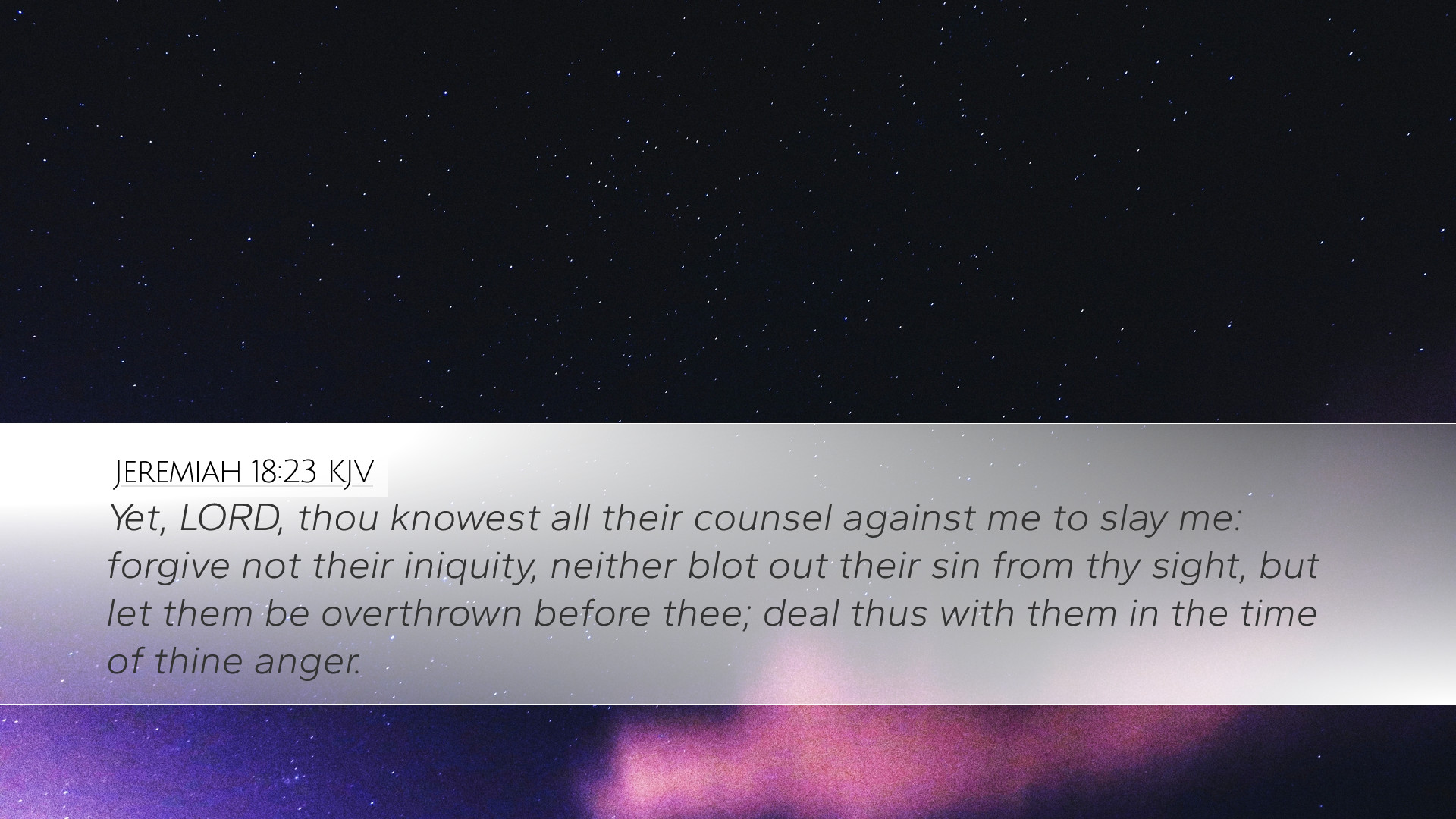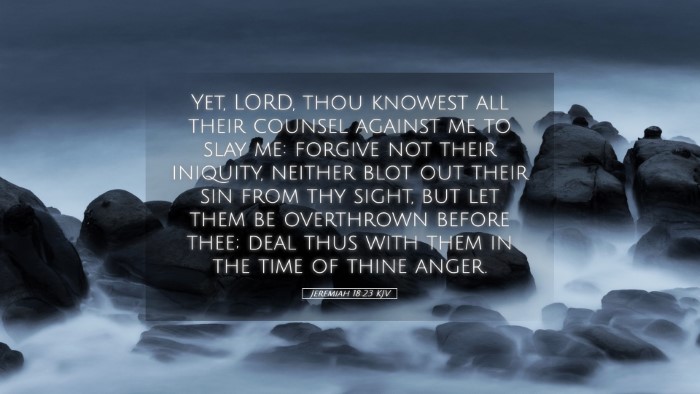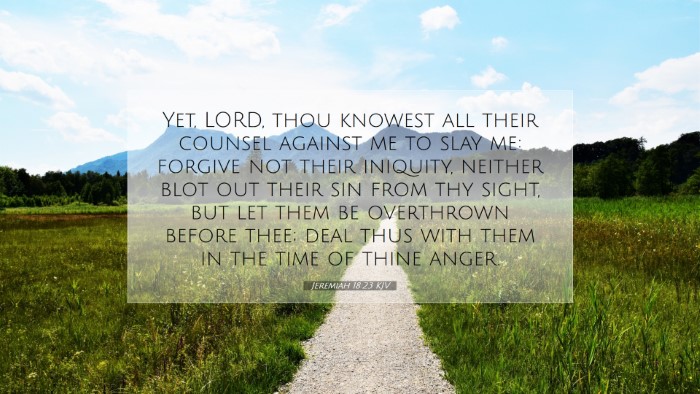Commentary on Jeremiah 18:23
Verse: "Yet, Lord, you know all their plots to kill me. Do not forgive their sin or blot out their guilt from your sight, for they have thrown off your law."
Introduction
This verse represents a pivotal moment of anguish and a declaration of deep distress by the prophet Jeremiah. It encapsulates themes of divine justice, human wickedness, and prophetic intercession. Commentary from historical theologians such as Matthew Henry, Albert Barnes, and Adam Clarke provides valuable insights into the complexities of Jeremiah's plea and the broader implications for understanding God's patience and sorrow over sin.
The Background of Jeremiah's Prophecy
Jeremiah, often called the "weeping prophet," ministered during a period of significant turbulence for the nation of Judah. As he proclaimed God's messages, he faced intense opposition, accusations, and plots against his life. This chapter, metaphorically depicting the potter's ability to reshape clay, juxtaposes God's sovereignty with human rebellion.
Henry's Insights on Divine Knowledge
Matthew Henry emphasizes that the Lord's omniscience is paramount in this verse:
- Divine Awareness: Henry points out that Jeremiah appeals to God's knowledge of their conspiracies, indicating an intimate awareness of human intentions.
- The Plots of Men: He highlights that the schemes against Jeremiah arise from a disdain for divine authority, clearly reflecting the disconnect between human ambition and God's righteous governance.
Barnes on the Nature of Forgiveness
Albert Barnes provides a critical reflection on the plea for justice and the implications of forgiveness:
- Judicial Retribution: Barnes interprets Jeremiah's plea not as a desire for personal vendetta but rather underscores the necessity for divine justice against a nation disregarding God's law.
- Forgiveness and Accountability: He emphasizes that there are times when divine forgiveness is withheld—especially in the face of persistent rebellion—reflecting the seriousness of sin.
Clarke on the Seriousness of Law Violation
Adam Clarke provides insight into the significance of throwing off God’s law:
- The Weight of Divine Law: Clarke suggests that casting aside God's law represents not just rebellion, but a defiant rejection of His authority.
- Consequences of Sin: This act brings severe consequences, as Jeremiah cries for mercy to be withheld, illustrating the profound ramifications of sin on the community and every individual.
Theological Reflections
This verse challenges readers to engage with several theological themes:
- The Justice of God: Jeremiah's lament echoes throughout scripture, revealing a God who is just yet longs for repentance.
- Human Sinfulness: It poignantly highlights the state of human nature—prone to conspiracies against God and His messengers.
- The Role of the Prophet: This passage illustrates the prophetic role in intercession and bearing the burdens of a collective guilt, indicating a profound solidarity with the community’s moral state.
Practical Applications for Today
Jeremiah 18:23 remains relevant for contemporary readers:
- Understanding Divine Justice: Believers are called to acknowledge the seriousness of their actions in relation to God’s moral order.
- Intercessory Prayer: Like Jeremiah, modern believers are invited to intercede for their communities, seeking God’s mercy while acknowledging the gravity of rebellion against Him.
- The Necessity of Law: The verse serves as a reminder of the importance of adhering to God’s commands and warnings against the consequences of dismissing divine guidance.
Conclusion
In Jeremiah 18:23, we witness a profound and emotional engagement with God regarding sin, justice, and the repercussions of rebellion. Insights from respected commentaries deepen our understanding of the text's implications not only for ancient Judah but also for contemporary faith communities. Jeremiah’s heart-wrenching cry serves as a powerful reminder of divine justice interwoven with a call for repentance and understanding of God’s longing for a faithful relationship with His people.


